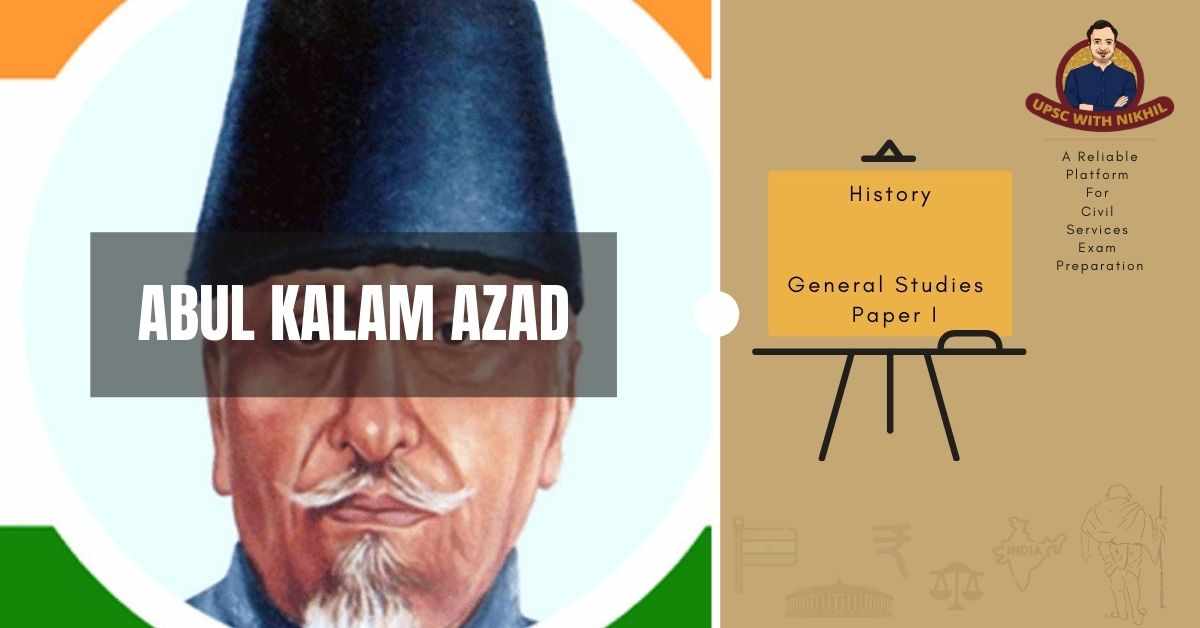Maulana Abul Kalam Azad
Alongside Pandit Nehru and Sardar Vallabhbhai Patel, Maulana Azad firmly fought for a united India. These giants formed a trio, negotiated for independence and laid the foundations of a secular society in India.
With the partition of Bengal in 1905, Maulana Azad's first brush with politics came when he opposed the pro-colonial mainstream of the Muslim middle class, who supported partition, and aligned himself with the anti-British nationalist movement. He was also part of some of the underground groups following the division of Bengal that came into being. He came into contact with leaders like Sufi Ambaprasad, Ajit Singh, Aurobindo Ghosh, Shyam Sundar Chakravorty and Lala Hardayal during this time, and was associated with them.
FACTS ABOUT HIS LIFE:
• Maulana Azad was born to a Bengali Muslim scholar Maulana Muhammad Khairuddin and his Arab wife in Mecca, Saudi Arabia.
• He was proficient in languages such as Urdu, Persian, Hindi, English, Bengali and Arabic. At a very young age, he exhibited erudition and contributed articles to magazines.
• He published a famous monthly Lissan-us-Sidq magazine when he was only 12. During the Indian independence movement, he was the senior Muslim representative of the Indian National Congress.

• He is widely remembered as Maulana Azad ('Our Master' is an honourable word for Maulana) and he adopted Azad (Free) as his pen name.
• He was Independent India’s first Minister of Education.
• He played an important role in the establishment of Jamia Millia Islamia in Uttar Pradesh, Aligarh.
• In 1934, he helped to move the university campus from Aligarh to New Delhi.
PRE AND POST-INDEPENDENCE CONTRIBUTION OF MAULANA ABUL KALAM AZAD
PRE- INDEPENDENCE:
Hindu-Muslim unity: Through his work as a journalist like publishing works critical of the British Raj and promoting causes of Indian nationalism, he rose to prominence during his young age. He operated through the Al-Hilal journal for Hindu-Muslim unity.
Khilafat movement: Maulana Azad was a prominent leader of the Khilafat movement in which national leaders such as Mahatma Gandhi, Vallabh Bhai Patel and Jawahar Lal Nehru were in close touch with him.
Non-cooperation movement: Maulana was discouraged by the 1919 Rowlatt Act and worked in its opposition to mobilise the Non-Cooperation Movement and Demonstrations. He organised many agitations and collaborated with Gandhi J.
Dharasana Satyagraha: In 1931, he was one of the key organisers of the Dharasana Satyagraha and emerged as one of the most powerful national leaders of the century, prominently leading Hindu-Muslim unity causes, as well as promoting secularism and socialism.
Protest against the theory of two nations: Maulana blamed Jinnah for the theory of two nations and claimed that Hindu and Muslims could coexist.
Quit India Movement: By meeting a large number of people at rallies and leading agitations and demonstrations against the colonial regime, he played an important role in the Quit India Movement. From 1940 to 1945, during which the Quit India movement was initiated, he served as the Congress president.
Independence of India: He negotiated the independence of India with the British Cabinet Mission. Furthermore, even after the approval of partition by Gandhiji, he was strictly against India's partition.
Member of the Constituent Assembly: He was a member of the Assembly and helped form India's Constitution.
Education: He was the first Minister of Education for the Union. In establishing the IIT, UGC, AICTE, Sahitya Academy, Lalit Kala Academy, Sangeet Natak Academy and many other educational initiatives in India, he played a crucial role.
Research: While holding natural resources and scientific research portfolio, he played a pivotal role in founding CSIR and India's scientific research laboratories.
Maulana Azad was truly a great nationalist, leader and giant of politics. C. Rajagopalachari considered Azad as "one who represents the keen understanding and synthetic ideology of the Great Akbar" The whole nation mourned his death when he died in 1958, and grieved the loss of a great philosopher-statesman and the noble son of India.
The birth anniversary of the Maulana Abul Kalam Azad is celebrated on 11 November every year as national education day, beginning in 2008.


